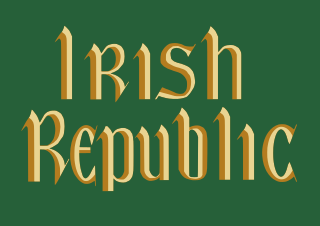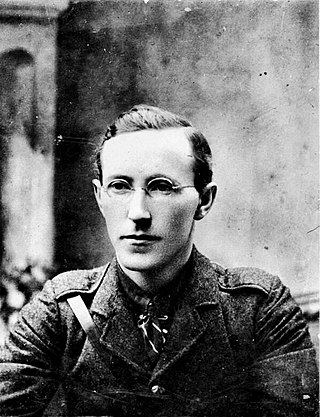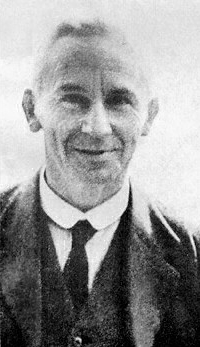Related Research Articles

The Continuity Irish Republican Army, styling itself as the Irish Republican Army, is an Irish republican paramilitary group that aims to bring about a united Ireland. It claims to be a direct continuation of the original Irish Republican Army and the national army of the Irish Republic that was proclaimed in 1916. It emerged from a split in the Provisional IRA in 1986 but did not become active until the Provisional IRA ceasefire of 1994. It is an illegal organisation in the Republic of Ireland and is designated a terrorist organisation in the United Kingdom, New Zealand and the United States. It has links with the political party Republican Sinn Féin (RSF).

The Irish Republican Army was an Irish republican revolutionary paramilitary organisation. The ancestor of many groups also known as the Irish Republican Army, and distinguished from them as the "Old IRA", it was descended from the Irish Volunteers, an organisation established on 25 November 1913 that staged the Easter Rising in April 1916. In 1919, the Irish Republic that had been proclaimed during the Easter Rising was formally established by an elected assembly, and the Irish Volunteers were recognised by Dáil Éireann as its legitimate army. Thereafter, the IRA waged a guerrilla campaign against the British occupation of Ireland in the 1919–1921 Irish War of Independence.

The Provisional Irish Republican Army, officially known as the Irish Republican Army and informally known as the Provos, was an Irish republican paramilitary force that sought to end British rule in Northern Ireland, facilitate Irish reunification and bring about an independent republic encompassing all of Ireland. It was the most active republican paramilitary group during the Troubles. It argued that the all-island Irish Republic continued to exist, and it saw itself as that state's army, the sole legitimate successor to the original IRA from the Irish War of Independence. It was designated a terrorist organisation in the United Kingdom and an unlawful organisation in the Republic of Ireland, both of whose authority it rejected.

Christopher Thomas Ewart Ewart-Biggs, was the British Ambassador to Ireland, an author and senior Foreign Office liaison officer with MI6. He was killed in 1976 by the Provisional Irish Republican Army (IRA) in Sandyford, Dublin.

The Irish War of Independence or Anglo-Irish War was a guerrilla war fought in Ireland from 1919 to 1921 between the Irish Republican Army and British forces: the British Army, along with the quasi-military Royal Irish Constabulary (RIC) and its paramilitary forces the Auxiliaries and Ulster Special Constabulary (USC). It was part of the Irish revolutionary period.
The Christopher Ewart-Biggs Memorial Prize was created in 1977, in memory of Christopher Ewart-Biggs, British Ambassador to Ireland, who was assassinated by the Provisional Irish Republican Army in 1976.
Tiocfaidh ár lá is an Irish language sentence which translates as "our day will come". It is a slogan of Irish Republicanism. "Our day" is the date hoped for by Irish nationalists on which a united Ireland is achieved. The slogan was coined in the 1970s during the Troubles in Northern Ireland and variously credited to Bobby Sands or Gerry Adams. It has been used by Sinn Féin representatives, appeared on graffiti and political murals, and been shouted by IRA defendants being convicted in British and Irish courts, and by their supporters in the public gallery. For Timothy Shanahan, the slogan "captures [a] confident sense of historical destiny". Derek Lundy comments, "Its meaning is ambiguous. It promises a new day for a hitherto repressed community, but it is also redolent of payback and reprisal."

Irish republicanism is the political movement for the unity and independence of Ireland under a republic. Irish republicans view British rule in any part of Ireland as inherently illegitimate.

William Fanaghan Lynch was an Irish Republican Army officer during the Irish War of Independence of 1919–1921. During much of the Irish Civil War, he was chief of staff of the Irish Republican Army. On 10 April 1923, Lynch was killed whilst trying to escape an encirclement by Free State troops in south Tipperary.

William Joseph Mellows was an Irish republican and Sinn Féin politician. Born in England to an English father and Irish mother, he grew up in Ashton-under-Lyne before moving to Ireland, being raised in Cork, Dublin and his mother's native Wexford. He was active with the Irish Republican Brotherhood and Irish Volunteers, and participated in the Easter Rising in County Galway and the War of Independence. Elected as a TD to the First Dáil, he rejected the Anglo-Irish Treaty. During the Irish Civil War Mellows was captured by Pro-Treaty forces after the surrender of the Four Courts in June 1922. On 8 December 1922 he was one of four senior IRA men executed by the Provisional Government.

The Irish Republican Army (IRA) is a name used by various resistance organisations in Ireland throughout the 20th and 21st centuries. Organisations by this name have been dedicated to anti-imperialism through Irish republicanism, the belief that all of Ireland should be an independent republic free from British colonial rule.
Ernest Bernard Malley was an Irish republican and writer. After a sheltered upbringing, he witnessed and participated in the Easter Rising of 1916, an event that changed his outlook fundamentally. O'Malley soon joined the Irish Volunteers before leaving home in spring 1918 to become an IRA organiser and training officer during the Irish War of Independence against British rule in Ireland. In the later period of that conflict, he was appointed a divisional commander with the rank of general. Subsequently, O'Malley strongly opposed the Anglo-Irish Treaty and became assistant chief of staff of the Anti-Treaty IRA during the Irish Civil War of 1922–23.

Ulster loyalism is a strand of Ulster unionism associated with working class Ulster Protestants in Northern Ireland. Like other unionists, loyalists support the continued existence of Northern Ireland within the United Kingdom, and oppose a united Ireland independent of the UK. Unlike other strands of unionism, loyalism has been described as an ethnic nationalism of Ulster Protestants and "a variation of British nationalism". Loyalists are often said to have a conditional loyalty to the British state so long as it defends their interests. They see themselves as loyal primarily to the Protestant British monarchy rather than to British governments and institutions, while Garret FitzGerald argued they are loyal to 'Ulster' over 'the Union'. A small minority of loyalists have called for an independent Ulster Protestant state, believing they cannot rely on British governments to support them. The term 'loyalism' is usually associated with paramilitarism.
Sinn Féin is the name of an Irish political party founded in 1905 by Arthur Griffith. It became a focus for various forms of Irish nationalism, especially Irish republicanism. After the Easter Rising in 1916, it grew in membership, with a reorganisation at its Ard Fheis in 1917. Its split in 1922 in response to the Anglo-Irish Treaty which led to the Irish Civil War and saw the origins of Fianna Fáil and Fine Gael, the two parties which have since dominated Irish politics. Another split in the remaining Sinn Féin organisation in the early years of the Troubles in 1970 led to the Sinn Féin of today, which is a republican, left-wing nationalist and secular party.

Roderick O'Connor was an Irish republican revolutionary. He was Director of Engineering for the IRA in the Irish War of Independence. O'Connor opposed the Anglo-Irish Treaty of 1921 and was chairman of the republican military council that became the Anti-Treaty IRA in March 1922. He was the main spokesman for the republican side in the lead-up to the outbreak of the Irish Civil War in June of that year. On 30 June, O'Connor was taken prisoner at the conclusion of the attack by Free State forces on the Four Courts in Dublin. On 8 December 1922, he was executed along with three other senior members of the IRA Four Courts garrison. All four men were executed without trial or courts martial.

Joseph McKelvey was an Irish Republican Army officer who was executed during the Irish Civil War without trial or court martial. He participated in the Anti-Treaty IRA's repudiation of the authority of the Dáil Éireann, the civil government of the Irish Republic declared in 1919 in March 1922, and was elected to the IRA Army Executive. In April 1922, he helped command the occupation of the Four Courts in defiance of the new Irish Free State. This action helped to spark the civil war, between pro- and anti-treaty factions. McKelvey was among the most hardline of the republican side and, briefly in June 1922, became IRA Chief of Staff.

Seán O'Hegarty was a prominent member of the Irish Republican Army in County Cork during the Irish War of Independence. He served as O/C of the Cork No. 1 Brigade of the IRA after the deaths of Tomás Mac Curtain and Terence MacSwiney.

Sheila Humphreys, also known as Sighle Humphreys, was an Irish political activist and member of Cumann na mBan.

Saoradh is a far-left political party and pressure group formed by dissident Irish republicans in 2016. It is active in both the Republic of Ireland and Northern Ireland. The Police Service of Northern Ireland and independent commentators describe the party as being close with the New IRA, although Saoradh themselves deny this.
British Home Secretary Reginald Maudling's reference to an "acceptable level" of violence in the Northern Ireland conflict was a political gaffe that helped shape public discussion about the conflict.
References
- ↑ "New Year's Honours 2018" (PDF). Gov.uk . Government Digital Service. 29 December 2017. p. 14. Retrieved 29 December 2017.
- ↑ "01 - Richard English PVC - QUB".
- ↑ Richard English's page at Queen's University Belfast
- ↑ Oxford University Press: Terrorism: Richard English
- ↑ The 'T' word: a review of Richard English's terrorism: how to respond (Oxford University Press 2009) – DORAS – DCU
- ↑ "Gifford Lectures". ed.ac.uk. University of Edinburgh.
- ↑ "Professor Richard Ludlow English FRSE - The Royal Society of Edinburgh". The Royal Society of Edinburgh. Retrieved 12 February 2018.